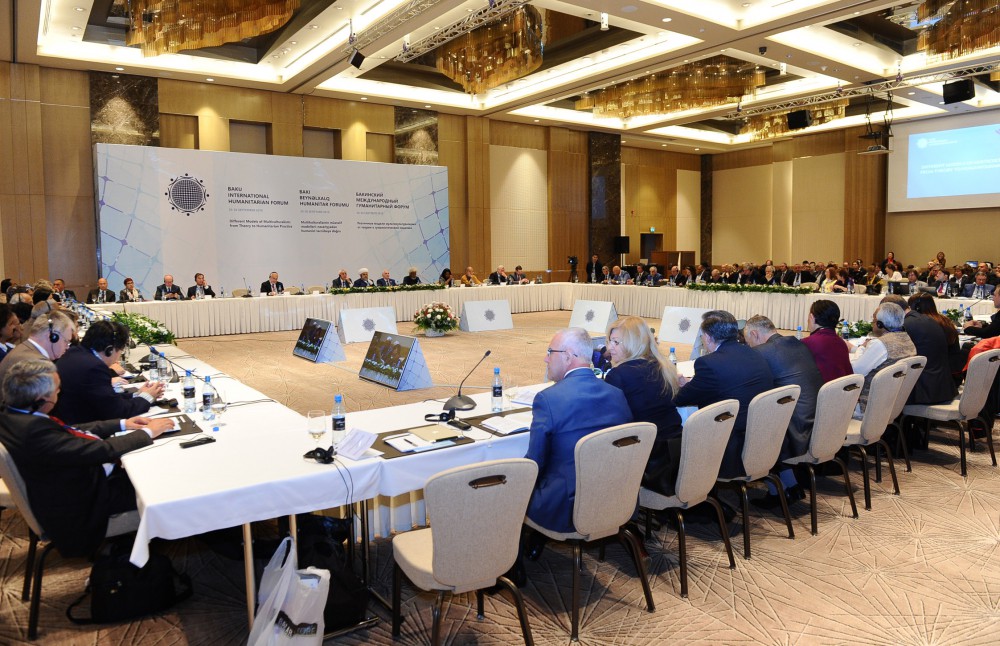28/11/2016
The UNESCO Chair for Intercultural Dialogue in the Mediterranean visits Baku
The director of the UNESCO Chair for Dialogue in the Mediterranean, Enric Olivé, has attended the fifth edition of the Baku Humanitarian Forum and given a round table talk on different models of multiculturalism. Like the other participants, Dr Olivé was invited to attend by the Azeri education minister and spoke about “New spirituality and intercultural dialogue: from the disappearance of the USSR to the war in Syria”

The director of the UNESCO Chair for Dialogue in the Mediterranean, Enric Olivé, has attended the fifth edition of the Baku Humanitarian Forum and given a round table talk on different models of multiculturalism. Like the other participants, Dr Olivé was invited to attend by the Azeri education minister and spoke about “New spirituality and intercultural dialogue: from the disappearance of the USSR to the war in Syria”
More than 400 people from 80 countries, including important political, scientific and cultural figures and 14 Nobel prize winners, have participated in the fifth edition of the Baku Humanitarian Forum, which took place from 29 to 30 September in the Azerbaijani capital. It is an annual event that aims to provide a platform for dialogue, discussion and the exchange of points of view on a variety of global topics of interest to humanity as a whole.
One of the six round tables at the Forum focused on “different models of multiculturalism: from theory to humanitarian practice” and examined the model for multiculturalism in Azerbaijan. It was presided over by the Azerbaijani State Counsellor for multiculturalism, Kamal Abdullayev, the rector of the Moscow State Institute of International Relations, Anatoly Torkunov and the president of Link Campus University, Vincenzo Scotti.
During his talk, the head of the UNESCO Chair for Dialogue in the Mediterranean, spoke about the disintegration of the Soviet Union which has led, among other things, to two elements in modern society that condition the dialogue between cultures and religions. According to Dr Olivé, these two elements are connected to each other and are the triumph of extreme capitalism and the appearance of new and diverse forms of religion and religious extremism. The talk covered the loss of spiritual coordinates in European societies and the recovery of social and spiritual structures in Muslim societies. The talk concluded by discussing the possibility of rebuilding the bridges between religious and monotheistic beliefs that have been destroyed by religious radicalisation, itself a result of political war, immigration and the economic crisis. This will require Western and non-Western societies to implement policies based on a series of principles that he outlined during the talk.
Every year the Humanitarian Forum puts forward proposals and recommendations for building bridges between cultures and religions and for ensuring peace and global security.
